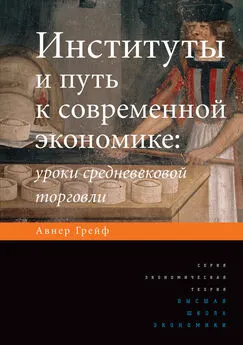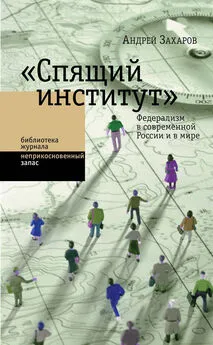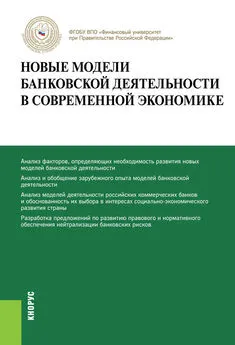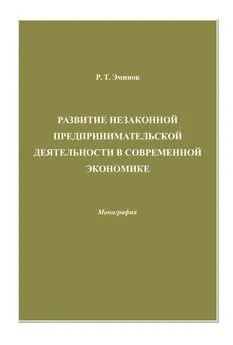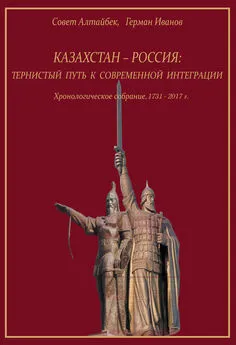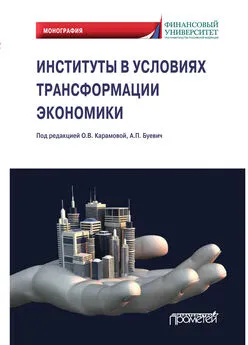Авнер Грейф - Институты и путь к современной экономике. Уроки средневековой торговли
- Название:Институты и путь к современной экономике. Уроки средневековой торговли
- Автор:
- Жанр:
- Издательство:Литагент «Высшая школа экономики»1397944e-cf23-11e0-9959-47117d41cf4b
- Год:2013
- Город:Москва
- ISBN:978-5-7598-0813-8
- Рейтинг:
- Избранное:Добавить в избранное
-
Отзывы:
-
Ваша оценка:
Авнер Грейф - Институты и путь к современной экономике. Уроки средневековой торговли краткое содержание
Принято считать, что существующие различия в экономике, политике и обществе отражают влияние различных институтов. Но среди экономистов, политологов и социологов нет единого мнения о том, что представляют собой институты, какие силы влияют на их сохранение и изменение и как мы можем повлиять на институциональное развитие. Эта междисциплинарная книга предлагает понятие институтов, которое объединяет внешне противоположные направления институционального анализа в социальных науках. В ней используется единый подход к изучению происхождения и сохранения институтов, их изменения и влияния предшествующих институтов на последующие.
Достоинства этого подхода демонстрируются при помощи сравнительных исследований институтов в средневековом европейском и мусульманском мире. Этот сравнительный анализ институциональных оснований рынков и государств и их динамики также способствует пониманию функционирования современных экономик. Он показывает своеобразие европейских институтов и объясняет, как и почему они привели к возникновению современной экономики, поддерживая обезличенный обмен, эффективные государства и использование знаний.
Институты и путь к современной экономике. Уроки средневековой торговли - читать онлайн бесплатно ознакомительный отрывок
Интервал:
Закладка:
Gurevich A. The Origins of European Individualism. Oxford: Blackwell, 1995.
Gustafsson B. The Rise and Economic Behaviour of Medieval Crafts Guilds. An Economic-Theoretical Interpretation // Scandinavian Economic History Review. 1987. Vol. 35. No. 1. P 1-40.
Güth W An Evolutionary Approach to Explaining Cooperative Behavior by Reciprocal Incentives // International Journal of Game Theory. 1992. Bd. 24. S. 323–344.
Güth W., Yaari M. Explaining Reciprocal Behavior in Simple Strategic Games: An Evolutionary Approach / U. Witt (ed.)/ Explaining Forces and Change: Approaches to Evolutionary Economics. Ann Arbor: University of Michigan Press. 1992. S. 23–34.
Haber S. Institutional Change and TFP Growth: Brazil and Mexico, 1860–1940 // Working Paper. Stanford University, 1997.
Haber S., Razo A., Maurer N. The Politics of Property Rights: Political Instability, Credible Commitments, and Economic Growth in Mexico, 1876–1929. Cambridge: Cambridge University Press, 2003.
Hagel J.H., Roth A. (eds). Handbook of Experimental Economics. Princeton, NJ: Princeton University Press, 1995.
Hall P.A., Taylor R.C.R. Political Science and the Three New Institutionalisms // Political Studies. 1996. Vol. 44. No. 4. P 936–957.
Hall P.A., Taylor R.C.R. The Potential of Historical Institutionalism: A Response to Hay and Wincott // Political Studies. 1998. Vol. 46. No. 4. P 958–962.
Hall R.E., Jones C.I. Why Do Some Countries Produce So Much More Output per Worker Than Others? // Quarterly Journal of Economics. 1999. Vol. 114 (Feb.). P 83-116.
Hamilton G.G. The Organizational Foundations of Western and Chinese Commerce: A Historical and Comparative Analysis / G.G. Hamilton (ed.). Business Networks and Economic Development in East and Southeast Asia. Hong Kong: University of Hong Kong, Centre of Asian Studies. 1991. P 48–65.
Hanawalt B. The Peasant Family and Crime in Fourteenth-Century England // Journal of British Studies. 1974. Vol. 13. No. 2. P 1-18.
Hardin R. Why a Constitution / B. Grofman, D. Wittman (eds.). The Federalist Papers and the New Institutionalism. N.Y.: Agathon Press. 1989. Р. 100–120.
Hardin R. Economic Theories of the State / D.C. Mueller (ed.). Perspectives on Public Choice: A Handbook. Cambridge: Cambridge University Press. 1997. Р. 21–34.
Hart O. Firms, Contracts, and Financial Structure. Oxford: Clarendon Press, 1995.
Hart O. Norms and the Theory of the Firm. University of Pennsylvania Law Review. 2001. Vol. 149. No. 6. P 1701–1715.
Hart O., Holmstrom B. The Theory of Contracts / T.F. Bewley (ed.). Advances in Economic Theory, Fifth World Congress. Cambridge: Cambridge University Press, 1987. P 71-157.
Hart O., Moore J. Foundations of Incomplete Contracts // Review of Economic Studies. 1999. Vol. 66. No. 1. P 115–138.
Hatcher J., Bailey M. Modeling the Middle Ages: The History and Theory of England’s Economic Development. Oxford: Oxford University Press, 2001.
Hayek F.A. Economics and Knowledge // Economica. 1937. Vol. 4. P 33–54.
Hayek F.A. Law Legislation and Liberty. Vol. 1. Chicago: University of Chicago Press, 1973.
Hayek F.A. Law Legislation and Liberty. Vol. 2. Chicago: University of Chicago, 1976.
Hayek F.A. Law Legislation and Liberty. Vol. 3. Chicago: University of Chicago, 1979.
Hearder H., Waley D.P. (eds). A Short History of Italy from Classical Times to the Present Day. Cambridge: Cambridge University Press, 1963.
Hechter M. The Insufficiency of Game Theory for the Resolution of Real World Collective Action Problems // Rationality and Society. 1992. Vol. 4. No. 1. P 33–40.
Heers J. Parties and Political Life in the Medieval West. Oxford: Oxford University Press, 1977.
Helpman E. The Mystery of Economic Growth. Cambridge, MA: Harvard University Press, 2004.
Henrich J., Boyd R., Bowles S., Camerer C., Fehr E., Gintis H. Foundations of Human Sociality: Experimental and Ethnographic Evidence from Fifteen Small-Scale Societies. Oxford: Oxford University Press, 2004.
Henrich J., Boyd R., Bowles S., Camerer C., Fehr E., Gintis H., McElreath R. In Search for Homo Economicus: Behavioral Experiments in 15 Small-Scale Societies // American Economic Review. 2001. Vol. 74 (May). P 73-8.
Herb M. Taxation and Representation. Studies in Comparative International Development. 2003. Vol. 8. No. 3. P 3-31.
Herlihy D. The Agrarian Revolution in Southern France and Italy, 801-1150: Speculum // Journal of Mediaeval Studies. 1958. Vol. 33. No. 1. P 23–42.
Herlihy D. Family Solidarity in Medieval Italian History / D. Herlihy, R.S. Lopez, V. Slessarev (eds). Economy Society, and Government in Medieval Italy: Essays in Memory of Robert L. Reynolds. Kent, OH: Kent State University Press, 1969. P 173–184.
Heyd W. Le colonie commerciali degli Italiani in Oriente nel Medio Evo. 2 vols. Venice: G. Antonelli, 1868.
Heyd W. Histoire du commerce du Levant au Moyen-age. 2 vols. Leipzig: Otto Harrassowitz, 1885.
Heywood W. A History of Pisa, Eleventh and Twelfth Centuries. Cambridge: Cambridge University Press, 1921.
Hicks J. A Theory of Economic History. Oxford: Oxford University Press, 1969.
Hickson C.R., Thompson E.A. A New Theory of Guilds and European Economic Development // Explorations in Economic History. 1991. Vol. 28. No. 2. P 127–168.
Hirshleifer J. The Expanding Domain of Economics // American Economic Review. 1985. Vol. 75. No. 6. P 53–70.
Hodgson G.M. The Approach of Institutional Economics // Journal of Economic Literature. 1998. Vol. 36. No. 1. P 166–192.
Hodgson M.G.S. The Venture of Islam. Vols. 1, 2. Chicago: University of Chicago Press, 1974.
Hoffman E., McCabe K., Shachat K., Smith V. Preferences, Property Rights, and Anonymity in Bargaining Games // Games and Economic Behavior. 1994. Vol. 7. No. 3. P 346–380.
Hoffman E., McCabe K., Smith V. On Expectations and the Monetary Stakes in Ultimatum Games // International Journal of Game Theory. 1996a. Vol. 125. No. 3. P 289–301.
Hoffman E., McCabe K., Smith V. Social Distance and Other-Regarding Behavior in Dictator Games // American Economic Review. 1996b. Vol. 86. No. 3. P 653–660.
Hoffman P.T. Taxes, Fiscal Crises, and Representative Institutions: The Case of Early Modern France: Unpublished manuscript. Washington University, Center for the History of Freedom, 1990.
Hoffman P.T. Land Rents and Agricultural Productivity: The Paris Basin, 14501789 // Journal of Economic History. 1991. Vol. 51. No. 4. P 771–805.
Hoffman P.T. Growth in a Traditional Society: The French Countryside, 14501815. Princeton, NJ: Princeton University Press, 1996.
Hoffman P.T., Postel-Vinay G., Rosenthal J.-L. Priceless Markets: The Political Economy of Credit in Paris, 1660–1870. Chicago: University of Chicago Press, 2000.
Höllander H. A Social Exchange Approach to Voluntary Cooperation // American Economic Review. 1990. Vol. 80. No. 5. P 1157–1167.
Homans G.C. The Human Group. N.Y.: Harcourt. 1950.
Homans G.C. Social Behavior. N.Y.: Harcourt, Brace & World, 1961.
Hsu F.L.K. Rugged Individualism Reconsidered. Knoxville: University of Tennessee Press, 1983.
Huck S., Oechssler J. The Indirect Evolutionary Approach to Explaining Fair Allocations // Games and Economic Behavior. 1999. Vol. 28. P 13–24.
HughesD.O. Toward Historical Ethnography: Notarial Records and Family History in the Middle Ages // Historical Methods Newsletter. 1974. Vol. 7. No. 2. P 61–71. Hughes D.O. Kinsmen and Neighbors in Medieval Genoa / H.A. Mistiming,
D. Herlihy, A.L. Udovitch (eds). The Medieval City. New Haven: Yale University Press, 1977. P 95-111.
Hughes D.O. Urban Growth and Family Structure in Medieval Genoa / P Abrams,
E. A. Wrigley (eds). Towns in Societies, 105–130. Cambridge: Cambridge University Press. Previously published in Past and Present. 1978. Vol. 66 (1975). P 3-28.
Hughes E.C. Institutional Office and the Person // American Journal of Sociology. 1937. Vol. 43. No. 3. P 404–413.
Hyde J.K. Society and Politics in Medieval Italy: The Evolution of Civil Life. London: Macmillan, 1973. P 1000–1350.
Ingram P. Organizational Form as a Solution to the Problem of Credible Commitment: The Evolution of Naming Strategies among US Hotel Chains, 1896–1980 // Strategic Management Journal. 1996. Vol. 17 (Summer). P 85–98.
Jacoby D. Trade, Commodities, and Shipping in the Medieval Mediterranean. Aldershot: Variorum, 1997.
Johnston S., McMillan J., Woodruff C. Courts and Relational Contracts // Journal of Law, Economics, and Organization. 2002. Vol. 18 (Spring). P 221–277.
Jones W.J. The Foundations of English Bankruptcy: Statutes and Commissions in the Early Modern Period. Philadelphia: Transactions of the American Philosophical Society, 1976.
Joskow P.L. Vertical Integration and Long-Term Contracts: The Case of Mine-Mouth Coal Plants: Paper presented at the Economic and Legal Organization Workshop. Department of Economics, Massachusetts Institute of Technology, 1984.
Kalai E., Lehrer E. Rational Learning Leads to Nash Equilibrium // Econometrica. 1993a. Vol. 61. No. 5. P. 1019–1045.
Kalai E., Lehrer E. Subjective Equilibrium in Repeated Games // Econometrica. 1993b. Vol. 61. No. 5. P. 1231–1240.
Kalai E., Lehrer E. Subjective Games and Equilibria // Games and Economic Behavior. 1995. Vol. 8. P. 123–163.
Kali R. Endogenous Business Networks // Journal of Law, Economics, and Organization. 1999. Vol. 15. No. 3. P. 615–636.
Kambayashi R. The Registration System and the Grade Wage System, Coordination and Relative Performance Evaluation: Memo. Tokyo University, 2002.
Kandori M. Social Norms and Community Enforcement // Review of Economic Studies. 1992. Vol. 59. No. 1. P. 63–80.
Kandori M. Evolutionary Game Theory in Economics / D.M. Kreps, K.F. Wallis (eds). Advances in Economic Theory. Cambridge: Cambridge University Press, 1997. Vol. 1. P. 243–77.
Kandori M. Introduction to Repeated Games with Private Monitoring // Journal of Economic Theory. 2002. Vol. 102. No. 1. P. 1–15.
Kandori M. The Erosions and Sustainability of Norms and Morals // Japanese Economic Review. 2003. Vol. 54. No. 1. P. 29–48.
Kandori M., Mailath G., Rob R. Learning, Mutation, and Long Run Equilibria in Games // Econometrica. 1993. Vol. 61. No. 1. P. 29–56.
Kaneko M., Matsui A. Inductive Game Theory: Discrimination and Prejudices // Journal of Public Economic Theory. 1999. Vol. 1. No. 1. P. 1–37.
Kantor S.E. Politics and Property Rights: The Closing of the Open Range in the Postbellum South. Chicago: University of Chicago Press, 1998.
Kedar B.Z. Merchants in Crisis: Genoese and Venetian Men of Affairs and the Fourteenth-Century Depression. New Haven: Yale University Press, 1976.
Kelly J.M. A Short History of Western Legal Theory. Oxford: Clarendon Press, 1992.
Kennedy H. The Prophet and the Age of the Caliphates. N.Y.: Longman, 1986.
Klein B., Leffler K.B. The Role of Market Forces in Assuring Contractual Performance // Journal of Political Economy. 1981. Vol. 89. No. 4. P. 615–641.
Читать дальшеИнтервал:
Закладка:
